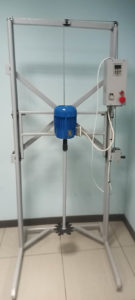Dextrin glues are made from starch swollen that has been (but not dissolved) in water. Starch is commercially available in different qualities. At a temperature of 50-70 °C, mixtures of starch and water, with a starch content of 10-20%, will ‘gelatinize’ with a 100-fold increase in volume and a drastic increase in viscosity. Hydration with calcium hydroxide, for example, reduces the so-called ‘gelatinization temperature’. These mixtures have a distinct structural viscosity (i. e. with increasing deformation rate), their viscosity significantly falls, and they become very thixotropic. Dextrin glues can therefore be manufactured with very low concentrations in starch and with a low initial viscosity that provides for rapid processing. When starch is heated to 110 °C and small amounts of nitric acid are added, water-soluble dextrins (and saccharides) are created; however, they have a less thickening effect and may therefore be dissolved at higher concentrations (up to 60%). Owing to their unusual viscosity properties, starch or dextrin adhesives are still used (in part besides casein glues) for the production of corrugated cardboard, and in the labeling sector. It was mentioned above that dextrin-rubber mixtures or dextrin-PVA mixtures generate moisture-activated adhesive systems for envelopes.
Dextrin Glues
 29 сентября, 2015
29 сентября, 2015  Pokraskin
Pokraskin  Опубликовано в рубрике
Опубликовано в рубрике 